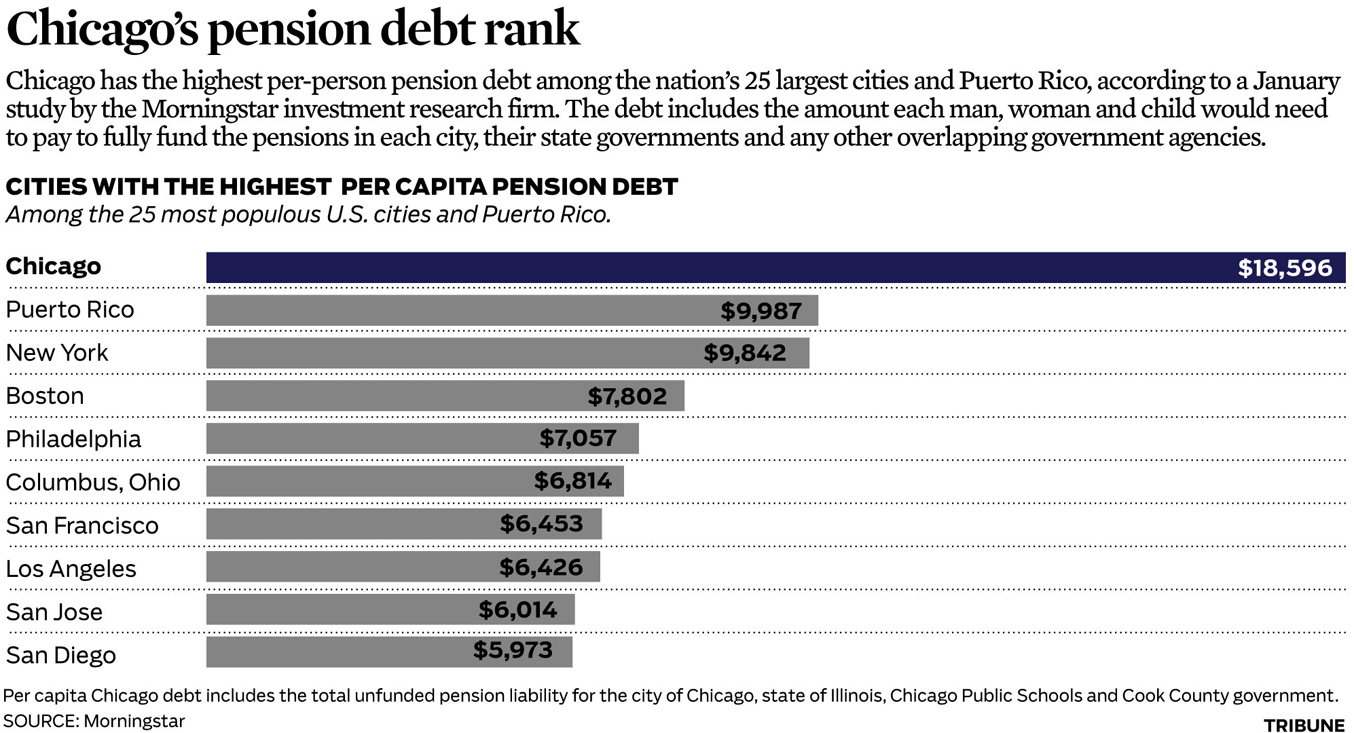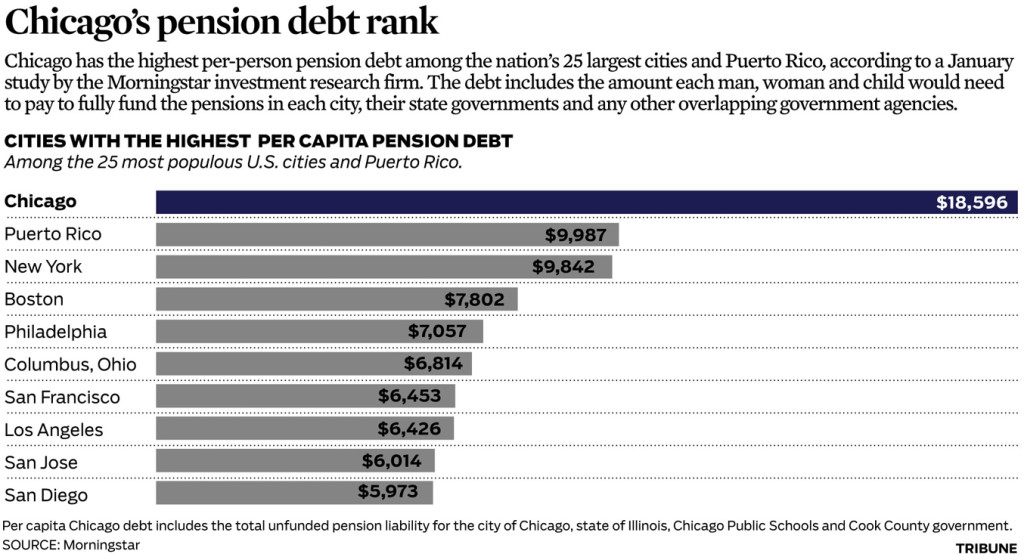Illinois Gov. Bruce Rauner didn’t touch on pensions during his State of the State address this week.
But in a list of policy proposals handed out to lawmakers, Rauner suggested giving municipalities the power to file for bankruptcy as a way to tame pension debt.
Even if towns and cities didn’t act, the threat of bankruptcy could give them leverage in pension negotiations with workers.
From the Chicago Tribune:
Gov. Bruce Rauner wants to give cities, towns and counties the authority to file for bankruptcy protection, a move that could give local governments a stronger foothold when negotiating with local police and fire officials over costly pension obligations.
[…]
Rauner aides would not elaborate on how it might work.
But the single sentence calling for the state to “extend to municipalities bankruptcy protections to help turn around struggling communities” mirrors a proposed law introduced last month by state Rep. Ron Sandack, R-Downers Grove. Sandack said his aim was to give cities more tools for getting their financial affairs in order, including a “level field” when negotiating over pensions.
Federal law only allows municipalities to file for bankruptcy with explicit permission from the state where they are located, said James Spiotto, a municipal bankruptcy expert and attorney who is managing director of Chicago-based Chapman Strategic Advisors.
Currently, only the Illinois Power Agency has been given such authority. It would take passage of a new state law to extend the authority to municipalities.
Chicago Mayor Rahm Emanuel was quick to dismiss the idea that the city would use such a tactic to lower its pension costs, according to the Tribune.




